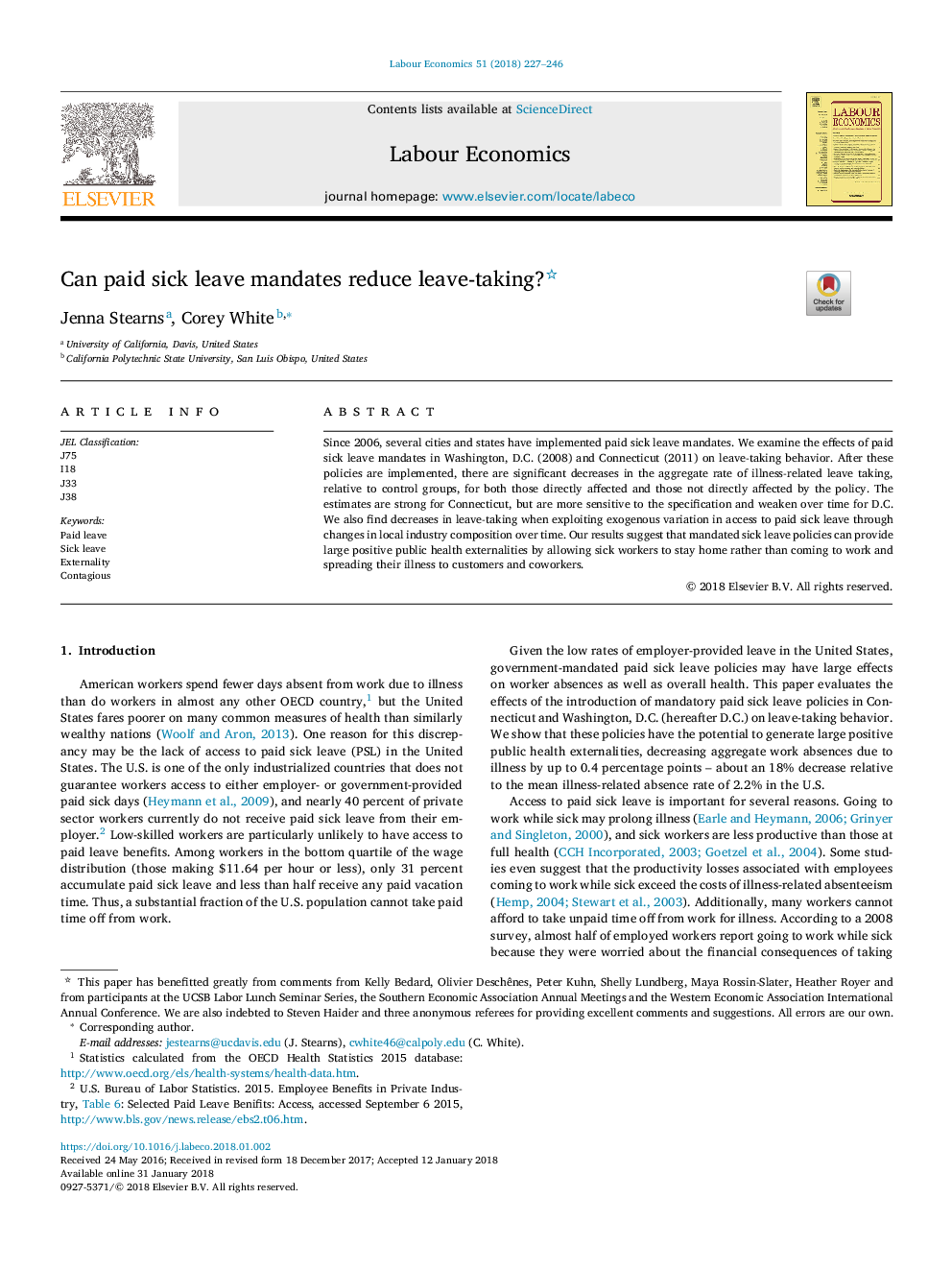| Article ID | Journal | Published Year | Pages | File Type |
|---|---|---|---|---|
| 7371294 | Labour Economics | 2018 | 20 Pages |
Abstract
Since 2006, several cities and states have implemented paid sick leave mandates. We examine the effects of paid sick leave mandates in Washington, D.C. (2008) and Connecticut (2011) on leave-taking behavior. After these policies are implemented, there are significant decreases in the aggregate rate of illness-related leave taking, relative to control groups, for both those directly affected and those not directly affected by the policy. The estimates are strong for Connecticut, but are more sensitive to the specification and weaken over time for D.C. We also find decreases in leave-taking when exploiting exogenous variation in access to paid sick leave through changes in local industry composition over time. Our results suggest that mandated sick leave policies can provide large positive public health externalities by allowing sick workers to stay home rather than coming to work and spreading their illness to customers and coworkers.
Related Topics
Social Sciences and Humanities
Economics, Econometrics and Finance
Economics and Econometrics
Authors
Jenna Stearns, Corey White,
